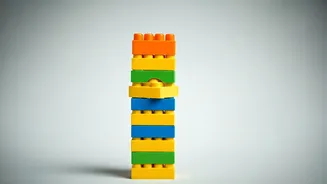Avoid Negative Comparisons
This section explains why directly comparing your child to others (siblings, cousins, or peers) damages their self-esteem and creates an environment of
unhealthy competition. It also provides an insight into the development of self-worth in children.
Stay Away from Negativity
It provides valuable information about avoiding blanket negativity. It emphasizes the importance of constructive criticism and positive reinforcement to help children cultivate a growth mindset. This empowers them to face challenges with confidence.
Avoid Disappointment Statements
This section explains the harmful impacts of expressing disappointment directly to your child. It also guides you on how to discuss your feelings calmly, explain the implications of certain actions, and foster a deeper understanding of the situation.
Never Use Threats
This section delves into why threats can damage a child’s emotional development and create insecurity. It suggests establishing clear boundaries instead of resorting to threats, fostering consistency, and developing the child's sense of safety.
Avoid Ignoring Emotions
This explains the importance of validating a child's emotions, offering a safe space for expression, and helping them develop healthy coping mechanisms, rather than suppressing their feelings.
Stop Demanding Obedience
It suggests the dangers of blindly following rules and emphasizes the benefits of teaching critical thinking and decision-making skills. It highlights the importance of explaining the rationale behind rules to promote cooperation and cultivate mutual respect.
Avoid Dismissing Complaints
This discusses the harm of dismissing a child's complaints and the importance of active listening and validation. It shows how it cultivates trust and a strong bond, enabling the child to develop emotional resilience.
Avoid Lazy Accusations
This focuses on why calling a child “lazy” is harmful and advises understanding the underlying issues. It recommends offering support, breaking down tasks, and celebrating accomplishments to encourage a positive attitude and promote a growth mindset.
Don't Use Harsh Words
This emphasizes the impact of hurtful phrases on a child's self-perception. It advises describing their actions instead of making broad judgements, encouraging their focus on improvement, and fostering a more positive relationship.
Avoid Unrealistic Expectations
This focuses on setting realistic expectations. It suggests understanding your child’s strengths and weaknesses, praising efforts, and supporting their interests to foster a stronger parent-child bond and develop self-confidence.














